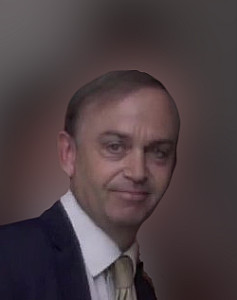Educational analysis - modern poetry
Description
Vocal Characteristics
Language
EnglishVoice Age
Middle Aged (35-54)Accents
British (General)Transcript
Note: Transcripts are generated using speech recognition software and may contain errors.
Group eight Modern Poetry. The term modern poetry can include poetry that was written as long ago as the first World War. But in general usage, the term usually implies poetry written by authors. You are either still alive or who have died only recently. In the mid 19 fifties, poetry took second place to drama has already discussed. This did not mean that no good poetry was written merely that in terms of trend setting and youthful innovation, drama held the lead. Poetry from the 19 fifties onwards has been a medium in a state of uncertainty. There have been good parts in plenty but non, who have unquestionably earned the right to be known is great and certainly no figure comparable and significance to Wordsworth in the 17 nineties or Elliott in the 19 twenties. Philip Larkin, born 1922 is extremely well known, though it has been suggested that his warmest support comes from teachers and academics rather than from a wide readership. In general, Larkin's poetry is not cheerful. It is extremely observant, both of people and places very often amusing orbit in a bitter, mildly cynical way and seeks to observe rather than to alter. There is no Shells or Blakes. Messianic prophetic. Further, in Larkin's work, it is skillfully written and presented and perhaps in the final count, just two negative to earn the title of great poetry. Ted Hughes, for 1930 is best known for his nature poetry, in which he concentrates on the single minded violence and forcefulness of nature. Seeing man is weak in comparison we deserved for survival. Diluted by his capacity for abstract thought, Hughes is forceful, compelling, direct and occasionally criticised for a lack of subtlety. Tom Gun, born 1929 is thought by many to be the equal of Ted Hughes, but as a part of abstract thought with an interest in form and a concept of violence, of the heart of atleast some of his poetry, he has not found favour with a majority of examining boards. A poet, too, paradoxically, has also not found further with examination boards. But for almost the opposite reason is John Benjamin or 1906 Bettman has been called trivial, snobbish and sentimental, and is perhaps too simple for most examiners who liked to give their students something to chew on and are often wary of authors who could be wholly explained with relative ease. Frenchman's poetry is highly observant, blessed with an excellent delicacy of comic response. I'm all richly textured that it might sometimes appear on the surface. Authors who have found on a majority of examination courses are Rs Thomas, born 1913, and Shay Mazzini. Born 1939 Thomas was for many years a priest working in, well, shell farming country. His poetry is bleak, powerful at once, a celebration of man's strength and an agonised lament at his primitivism. Coupled with a religious man soul searching and struggled to define his relationship with God, he needs the modern Po. To most of all, succeed through his imagery is remember. Pictures of an Irish childhood and of rural scenes have an immediacy in depth. Holy Jew To Hean is startling yet simple technique. He needs a poet of mood a moment, not a prophet who will deal with all the world's ills but is none the worse for that, the so called Liverpool sound and poetry reached total write it roughly the same time as their fellow Liverpudlians, the Beatles. Irreverent, flippant, occasionally shocking. They have reached a wide audience on by the nature of what they have written on. By linking poetry, rock, music, theatre and film, they've done a great deal to make poetry popular again. Leading exponents are Brian Patton for 1946 Raj MacGuff, born 1937 and Adriana All Ri on 1932.
